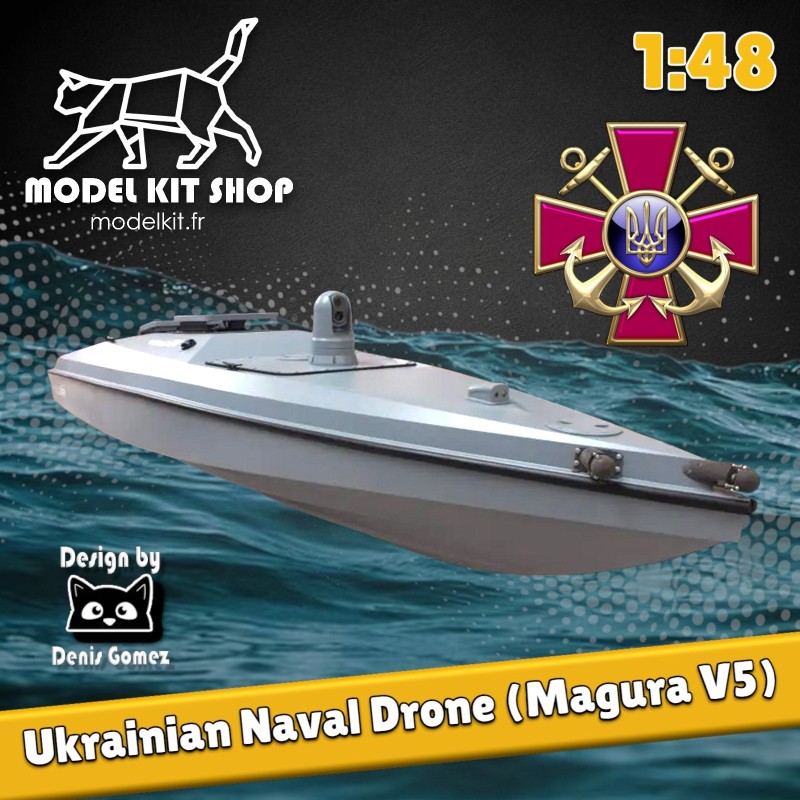1:48 - Ukrainian Naval Drone (Magura V5)
Contains:
The drone
His rack
A figurine

Security policy (edit with Customer reassurance module)
Handy, fast, inexpensive
These “floating bombs” carry with them an explosive charge of up to 100 to 200 kilograms. They are very fast and very maneuverable: to escape a defense system, the pilot has the possibility of dodging with fairly rapid avoidance maneuvers with reduced amplitude. These bombs are very difficult to shoot down before they hit their target. Their range depends on the engine, but they can go up to 150 to 200 nautical miles, or 277 to 370 km. To date, the Russian army does not use this type of weapon, and defends itself by using nets and dolphins to protect its military base in Sevastopol, in the Black Sea.
The cost of these USVs is difficult to estimate, because of the criteria to be taken into account: quality of the satellite antenna, weight of the explosive charge. However, their price, estimated at a few tens of thousands of dollars, is much lower than that of a cruise missile, for example, which costs around $100,000. This is what allows Ukraine to produce a lot of it, without us knowing precisely how much.
Destruction or reconnaissance mission
Naval drones can cause great damage if not intercepted, due to their explosive charge combined with the speed reached by the craft at the time of impact. Since September 2022, Ukraine has used these weapons dozens of times against Russian ships in the Black Sea, but never against submarines since this drone is incapable of diving.
These “floating bombs” are used to destroy enemy buildings but can also defend targets, act as scouts and carry out reconnaissance operations, since the device is not just a “kamikaze”. It does not systematically explode once put into service.
Data sheet
- Compositions
- Resin - 14K - 25 microns
- Property
- No Painted
- Product safety information
- For use under the direct supervision of an adult.
This toy offers no protection.
Warning: not suitable for children under 3 years of age.





